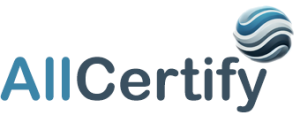Analyzing the Effectiveness of Business Certifications in Promoting Agile Leadership and Decision-Making in Dynamic Market Environment
In today’s whirlwind of market changes and technological advancements, businesses resemble ships navigating unpredictable seas. The captain at the helm? Agile Leadership, guiding these vessels with flexibility, collaboration, and swift decision-making. But how do leaders acquire their Agile sea legs? Enter business certifications, the compasses that help steer the ship!
The modern business landscape is evolving at a breakneck pace, demanding adaptability and responsiveness like never before. With new technologies emerging daily and consumer preferences shifting like desert sands, organizations need leaders who can rally their teams around a shared vision while deftly navigating the turbulent waters of the marketplace. Agile leadership emerges here as a beacon, transforming traditional management approaches and offering a refreshing perspective on tackling challenges head-on.
So, what are business certifications, and how do they fit into this Agile narrative? Business certifications are accolades awarded upon completing specialized training programs. They equip professionals with the skills and knowledge needed to excel in their fields. Covering a range of methodologies, Agile is a key player among them. Popular certifications include Certified ScrumMaster (CSM), Project Management Professional (PMP), and Agile Certified Practitioner (PMI-ACP). Each offers a unique toolkit and frameworks that leaders can leverage to enhance their capabilities and propel their organizations forward.
You might wonder, why should I care about these certifications? Allow me to take you on a journey that illustrates their importance. I had a friend named Sarah, a project manager at a burgeoning tech startup. As the company grew rapidly, the demands on her were mounting. Sarah was a talented manager but struggled to keep her team aligned amidst the chaos of shifting priorities and deadlines. One day, she stumbled upon a certification program for Agile leadership. Intrigued, she decided to enroll.
Fast forward a few months, and Sarah was a transformed leader. The Agile principles she learned reshaped her approach to leadership. She implemented daily stand-up meetings where her team could share progress and address roadblocks. Communication improved, and her team members felt more empowered to contribute their ideas. Instead of merely reacting to changes, Sarah began to anticipate them, adjusting her strategies on the fly. This agility not only boosted team morale but also led to more successful project outcomes. Her transformation was so profound that her startup’s CEO took notice and promoted her to lead a new division within the company.
Sarah’s story is just one example of the Agile effect. In today’s business world, being Agile is no longer optional-it’s a necessity. Here are some key benefits of pursuing Agile certifications.
Enhanced Skill Set: Certifications endow leaders with essential tools and frameworks to adapt to changing circumstances. Agile methodologies promote iterative development, enabling teams to quickly respond to customer feedback and market demands. With a solid foundation in Agile principles, leaders can create an environment where innovation thrives, and collaboration becomes second nature.
Improved Team Dynamics: Agile practices emphasize teamwork and collective responsibility. By earning certifications, leaders learn how to foster a culture of trust and open communication among team members. This leads to stronger relationships, increased engagement, and better results. Like Sarah, many leaders find that promoting a collaborative atmosphere enhances productivity and boosts morale.
Better Risk Management: Agile leaders are trained to anticipate risks and devise strategies to mitigate them. Traditional management often relies on rigid plans that can become obsolete in the face of unexpected challenges. Agile practices encourage leaders to be proactive rather than reactive, allowing them to navigate uncertainty with confidence.
Greater Customer Focus: One of the core tenets of Agile methodologies is delivering value to customers. Leaders who pursue Agile certifications learn to prioritize customer needs and align their teams around a shared vision of delivering high-quality products and services. This customer-centric approach not only enhances satisfaction but also drives loyalty and long-term success.
Continuous Improvement: The Agile mindset emphasizes learning and growth. Certified leaders are encouraged to reflect on their processes, seek feedback, and embrace change. This commitment to continuous improvement ensures that organizations remain competitive and are always striving to enhance their offerings.
Networking Opportunities: Pursuing an Agile certification opens the door to a vibrant community of like-minded professionals. Leaders can connect with peers, share experiences, and learn from each other’s successes and challenges. This network can be invaluable for career growth and development and staying informed about industry trends and best practices.
In conclusion, the Agile advantage is evident. In a dynamic business world, certifications in Agile methodologies equip leaders with the skills, tools, and mindset needed to navigate uncertainty and propel their organizations forward. Just like my friend Sarah, who transformed her team and career through her Agile journey, countless others are discovering the benefits of these valuable credentials.
Whether you’re a seasoned leader looking to sharpen your skills or a newcomer eager to dive into the world of Agile, pursuing a certification can be a game-changer. Embrace the Agile mindset, invest in your professional development, and watch as you steer your ship toward success in the ever-changing seas of business. The world may be unpredictable, but with the right tools and a commitment to agility, the sky’s the limit for what you can achieve.
The modern business landscape is evolving at a breakneck pace, demanding adaptability and responsiveness like never before. With new technologies emerging daily and consumer preferences shifting like desert sands, organizations need leaders who can rally their teams around a shared vision while deftly navigating the turbulent waters of the marketplace. Agile leadership emerges here as a beacon, transforming traditional management approaches and offering a refreshing perspective on tackling challenges head-on.
So, what are business certifications, and how do they fit into this Agile narrative? Business certifications are accolades awarded upon completing specialized training programs. They equip professionals with the skills and knowledge needed to excel in their fields. Covering a range of methodologies, Agile is a key player among them. Popular certifications include Certified ScrumMaster (CSM), Project Management Professional (PMP), and Agile Certified Practitioner (PMI-ACP). Each offers a unique toolkit and frameworks that leaders can leverage to enhance their capabilities and propel their organizations forward.
You might wonder, why should I care about these certifications? Allow me to take you on a journey that illustrates their importance. I had a friend named Sarah, a project manager at a burgeoning tech startup. As the company grew rapidly, the demands on her were mounting. Sarah was a talented manager but struggled to keep her team aligned amidst the chaos of shifting priorities and deadlines. One day, she stumbled upon a certification program for Agile leadership. Intrigued, she decided to enroll.
Fast forward a few months, and Sarah was a transformed leader. The Agile principles she learned reshaped her approach to leadership. She implemented daily stand-up meetings where her team could share progress and address roadblocks. Communication improved, and her team members felt more empowered to contribute their ideas. Instead of merely reacting to changes, Sarah began to anticipate them, adjusting her strategies on the fly. This agility not only boosted team morale but also led to more successful project outcomes. Her transformation was so profound that her startup’s CEO took notice and promoted her to lead a new division within the company.
Sarah’s story is just one example of the Agile effect. In today’s business world, being Agile is no longer optional-it’s a necessity. Here are some key benefits of pursuing Agile certifications.
Enhanced Skill Set: Certifications endow leaders with essential tools and frameworks to adapt to changing circumstances. Agile methodologies promote iterative development, enabling teams to quickly respond to customer feedback and market demands. With a solid foundation in Agile principles, leaders can create an environment where innovation thrives, and collaboration becomes second nature.
Improved Team Dynamics: Agile practices emphasize teamwork and collective responsibility. By earning certifications, leaders learn how to foster a culture of trust and open communication among team members. This leads to stronger relationships, increased engagement, and better results. Like Sarah, many leaders find that promoting a collaborative atmosphere enhances productivity and boosts morale.
Better Risk Management: Agile leaders are trained to anticipate risks and devise strategies to mitigate them. Traditional management often relies on rigid plans that can become obsolete in the face of unexpected challenges. Agile practices encourage leaders to be proactive rather than reactive, allowing them to navigate uncertainty with confidence.
Greater Customer Focus: One of the core tenets of Agile methodologies is delivering value to customers. Leaders who pursue Agile certifications learn to prioritize customer needs and align their teams around a shared vision of delivering high-quality products and services. This customer-centric approach not only enhances satisfaction but also drives loyalty and long-term success.
Continuous Improvement: The Agile mindset emphasizes learning and growth. Certified leaders are encouraged to reflect on their processes, seek feedback, and embrace change. This commitment to continuous improvement ensures that organizations remain competitive and are always striving to enhance their offerings.
Networking Opportunities: Pursuing an Agile certification opens the door to a vibrant community of like-minded professionals. Leaders can connect with peers, share experiences, and learn from each other’s successes and challenges. This network can be invaluable for career growth and development and staying informed about industry trends and best practices.
In conclusion, the Agile advantage is evident. In a dynamic business world, certifications in Agile methodologies equip leaders with the skills, tools, and mindset needed to navigate uncertainty and propel their organizations forward. Just like my friend Sarah, who transformed her team and career through her Agile journey, countless others are discovering the benefits of these valuable credentials.
Whether you’re a seasoned leader looking to sharpen your skills or a newcomer eager to dive into the world of Agile, pursuing a certification can be a game-changer. Embrace the Agile mindset, invest in your professional development, and watch as you steer your ship toward success in the ever-changing seas of business. The world may be unpredictable, but with the right tools and a commitment to agility, the sky’s the limit for what you can achieve.





Leave a Reply
Want to join the discussion?Feel free to contribute!